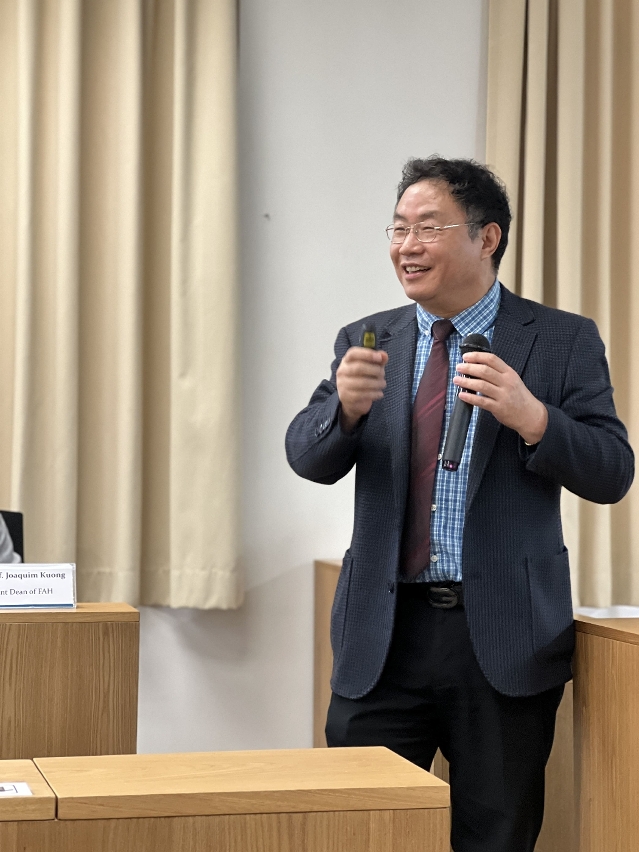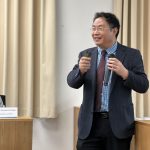 Xu Jie
Xu Jie
To promote academic collaboration and exchange between faculty members and students, the Faculty of Arts and Humanities (FAH) of the University of Macau (UM) recently held the first Macao Humanities Roundtable. During the event, scholars from various FAH departments presented their latest research findings in disciplines such as literature, history, philosophy, linguistics, translation, and education. The event attracted many faculty members and students.
The roundtable was initiated by FAH Dean Xu Jie and Assistant Dean Joaquim Kuong. In his opening remarks, Prof Xu said that the Macao Humanities Roundtable aimed to provide an equal and multidisciplinary platform for UM members to engage in academic exchange. Given that the roundtable was held on a day marking the 103rd anniversary of the May Fourth Movement, Prof Xu encouraged all faculty members and students to inherit and promote the movement’s spirit and make an impact in their respective fields. The event included six sessions of presentations and they were chaired by FAH professors Victoria Lei, Zhang Yue, Yang Bin, Zhu Tianshu, Joaquim Kuong, and Cecilia Zhao, respectively.
The presentations touched on a wide range of topics and highlighted the presenters’ latest research results by providing clear and concise explanations. One of the studies involved interdisciplinary collaboration and explored the relationship between language and music using the functional magnetic resonance imaging (fMRI) technology. At the end of the presentations, the speakers and the audience actively exchanged their views on the presented topics. The participants benefited from the event through witnessing in person the rich and outstanding achievements of FAH researchers.


